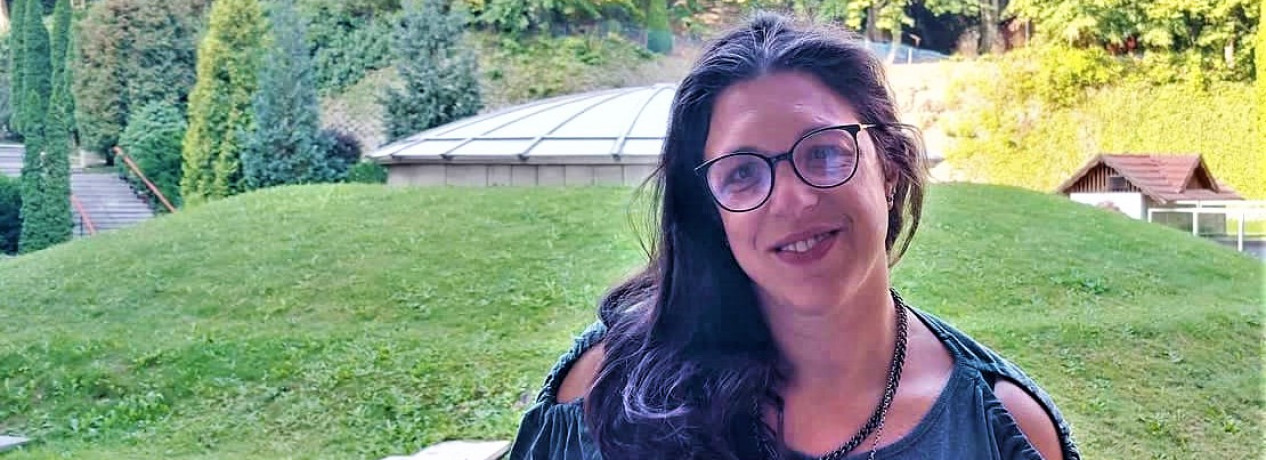– As an Argentinian, do you have a personal connection to tango?
– Definitely because in my grantparents’ youth about a hundred years ago tango was really popular. For this reason alone I’m attached to it, primarily due to their stories and experiences. From my mother’s side, I have Russian ancestors so I’ve always listened to a lot of Russian music but besides that, I had tango, too. Out of the music played at Színház square in Pécs, most of their lyrics I know by heart.
– What does tango mean today for Argentinians? Is it part of the national identity?
– It depends. Obviously, there’s a group who, as quasi artists, want to and also manage to make a living of this. They sing, dance and basically "sell" tango. Regardless of this, it can be said in general that tango is part of the Argentinian identity, even though I’m not sure if it’s the case with youths as well. They don’t listen to tango, not even rock, but only newer music.
– Were you surprised that (from an Argentinian perspective) such a serious tango cult is being formed in a Hungarian town at the end of the world?
– Yes, it feels a bit odd that I’m here in Pécs, although only for a few days, and I’m suddenly in the middle of this tango mania. I like it because even though I’m far from home, thanks to the music I’m given a sense of homeliness. I talked to the ambassador as well about this special experience. I’ve always been interested in the way different cultures affect each other, how they manage to create a discourse and what is the reason for this. What does tango bring to Pécs and what does it give to the spirit of the city? As I’ve explained at the high school talk, I love getting to such "border regions". I can see and learn so much more here that in metropolises.
– What was the most surprising, most exciting thing in Pécs?
– The whole situation was exciting and surprising because I’m mostly invited to literary festivals but this is a different thing. It’s about tango and music – I’m present as kind of an observer but it’s not a problem. It’s a fact that my fellow citizen José Cura was the celebrity guest which is absolutely understandable from the locals’ viewpoint. We definitely represent our homeland differently in foreign countries. It might sound a little opinionated but at home Cura doesn’t necessarily have more listeners than my books have readers. At the same time, I’ve always been drawn to Hungarian culture and I also read great Hungarian authors. As astounding as it sounds, I’m confident that Fatelessness by Imre Kertész had a bigger effect on my life than my two hunbands together. But I also love Márai, Ágota Kristóf and naturally the music of Franz Liszt which has been part of my life since forever.
– What do you think of the situation of literature? Writers keep writing but what about potential young readers?
– It’s obviously not a very original viewpoint that today’s kids read a lot less than we used to back in the day. Now it’s scientifically proven that they can’t focus for such a long time period that would be needed for a book. Time ha become very fragmented. They rather read comic books – at least in France where I’m currently living. It’s a noble cause to "make them love" reading but it’s quite forced and it often results in the opposite. Of course, this might not be a concern for writers because they must write, that’s it. It’s an inner need and at first it doesn’t matter what the fate of the work will be. Authors are not traders who produce for the market – normally…
– What kind of works are being born in the workshop of Ariana Harwicz?
– Many things are being made simultaneously which is just as good as it’s bad. For example, I had a request from Teatro Colon in Buenos Aires for an opera libretto which I have never done before so it’s exciting how such a task would turn out. I would clearly emphasize the lyrics but then, there’s the composer as well – we’re still "fighting". The novel I’m writing is also keeping me excited because it will be a dialogue of inner monologues: the text in made up of the unspoken thoughts and feelings of a couple.
Originally published in Hungarian on Eozin Magazin

